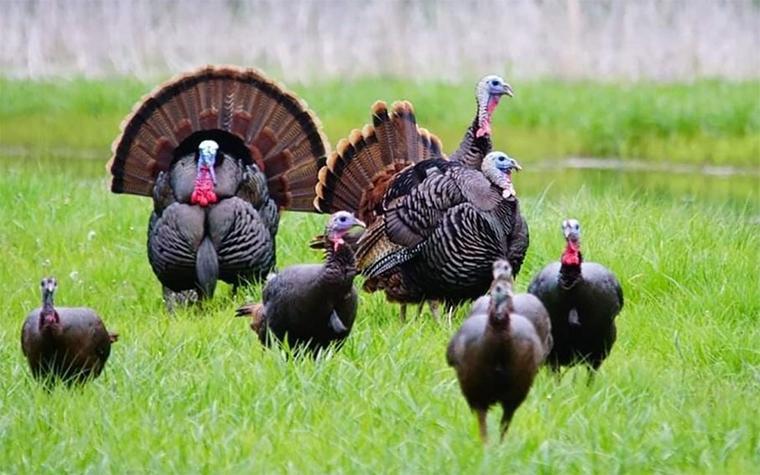
Antlers, Anglers and Ag event brings together farmers and outdoorsmen
NOVELTY, Mo. – University of Missouri Extension and partners will hold the first Antlers, Anglers and Ag: Elevating Today’s Outdoorsmen for Tomorrow’s Harvest event Saturday, March 28, at the MU Lee Greenley Jr. Memorial Research Farm in Novelty.
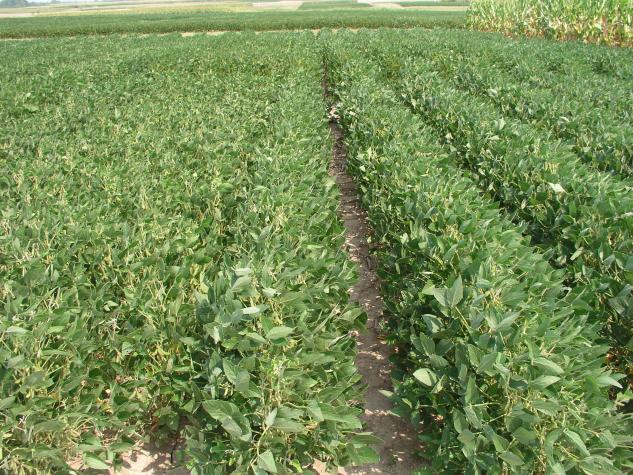
State Line Crop Conference offers speakers from MU, K-State
The annual State Line Crop Conference offers updates from University of Missouri Extension and Kansas State Extension researchers. The free event is 9 a.m. to 3 p.m. Thursday, Feb. 19, at First Baptist Church Family Life Outreach Center, 1301 E. Sixth St., Lamar, said MU Extension field agronomist Micah Doubledee.
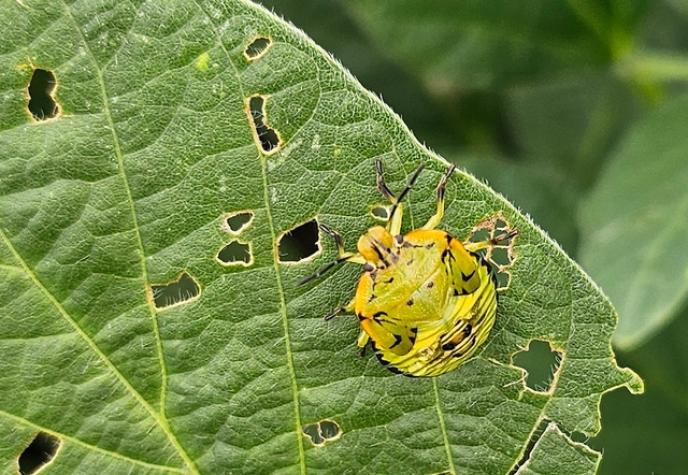
Watch for stink bugs in crops in 2026
COLUMBIA, Mo. – Something’s been stinking in Missouri soybean, corn and cotton crops since the 1990s. University of Missouri Extension state field crops and forage entomologist Ivair Valmorbida says stink bugs feed on a variety of plant species, including corn and soybeans.

Registration open for Feb. 18-19 grain marketing workshop
COLUMBIA, Mo. – University of Missouri Extension, with support by Missouri Corn Producers and their checkoff, is offering corn and soybean producers a opportunity to strengthen their marketing skills through the “Basics of Grain Marketing Workshop,” set for Feb. 18-19 at the Boone County Electric Cooperative in Columbia.
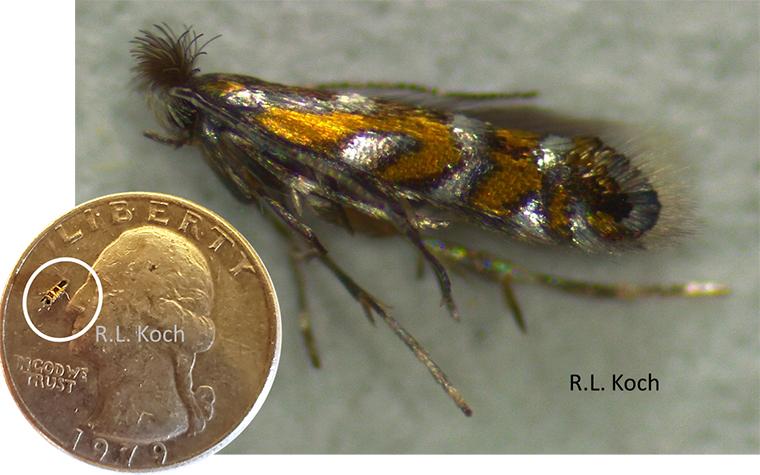
Watch for new soybean pest in Missouri
COLUMBIA, Mo. – The soybean tentiform leafminer (STL) moth is no bigger than George Washington’s nose on a quarter. But don’t underestimate it, says Ivair Valmorbida, University of Missouri Extension state field crops and forage entomologist. Valmorbida confirmed STL’s presence in 2025 in Cooper County in a field next to a wooded area, its preferred infestation area.
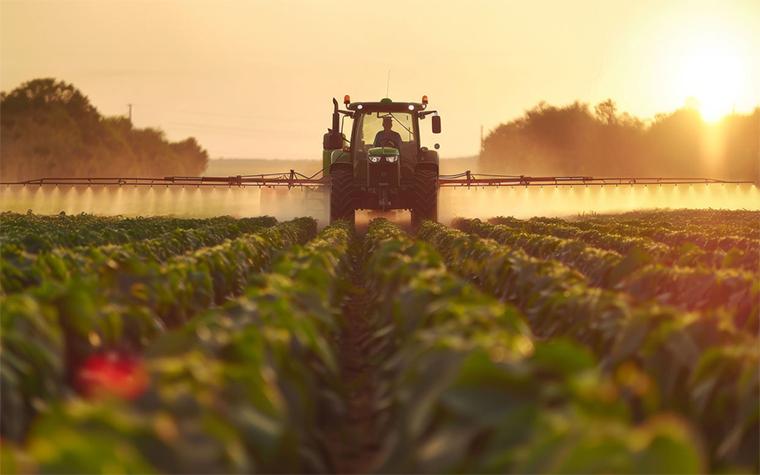
Register for the Missouri Crop Management Conference
Registration is open for the state’s premier agricultural conference for farmers and ag industry professionals, the Missouri Crop Management Conference, Dec. 9-10 in Columbia.
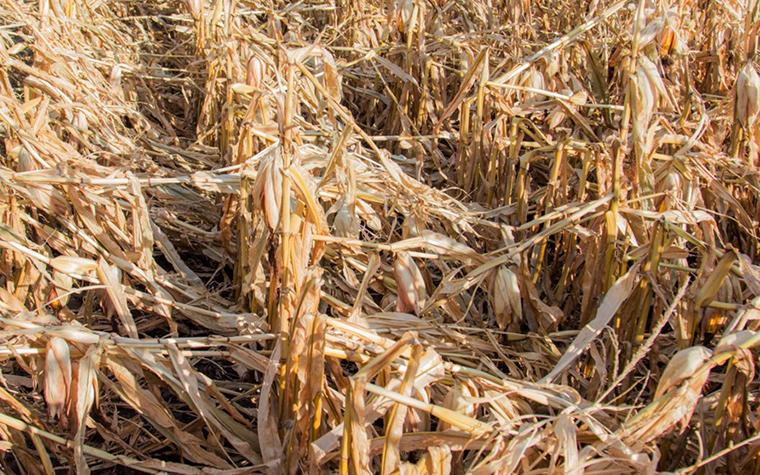
Data-driven insights for harvest timing
The MU Extension publication “Days Suitable for Fieldwork in Missouri” can help farmers plan with confidence. It draws on 20 years of weather data to show weekly averages of days suitable for fieldwork. It also includes formulas to estimate how much acreage can be covered per day and size equipment to match available field time.

MU Soybean monitoring report predicts sharp decline in yield
The latest Soybean Growth Monitoring Yield Prediction report from MU Extension predicts drastically lower soybean yields due to lack of rain, averaging 3-6 bushels per acre lower than in the previous report.
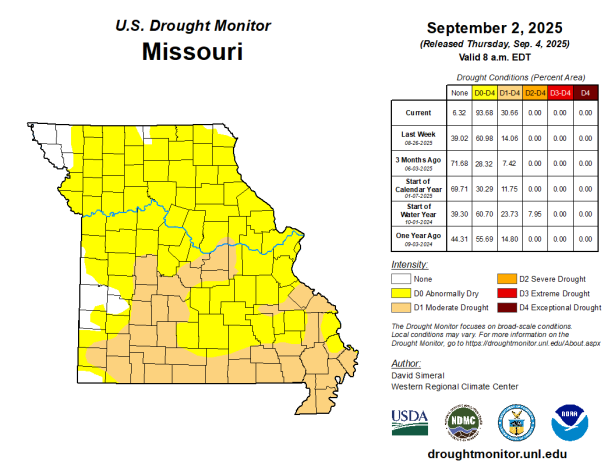
More than 90% of state in drought as harvest nears
As harvest nears, MU Extension agronomists see signs of flash drought threatening Missouri crop yields. The U.S. Drought Monitor map for Missouri released on Sept. 4 shows that 93.68% of Missouri is at least abnormally dry following an unusually wet spring.
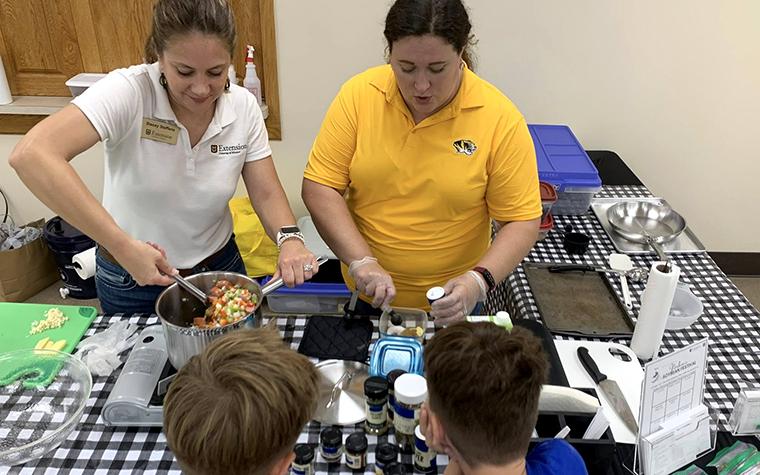
MU Extension brings learning, application to Norborne Soybean Festival
MU Extension again joined the celebration at the Norborne Soybean Festival in August by bringing hands-on learning and application to the “Soybean Capital of the World.”
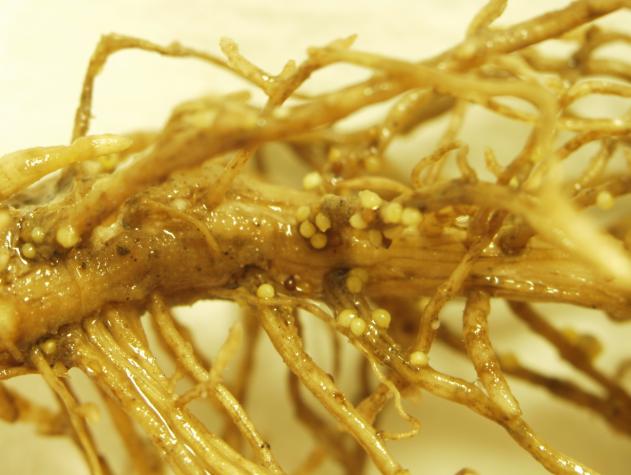
Free SCN tests available to Missouri farmers
University of Missouri Extension, SCN Diagnostics and Missouri Soybean Merchandising Council are again offering free testing for soybean cyst nematode (SCN), the No. 1 pathogen of soybean in the United States.
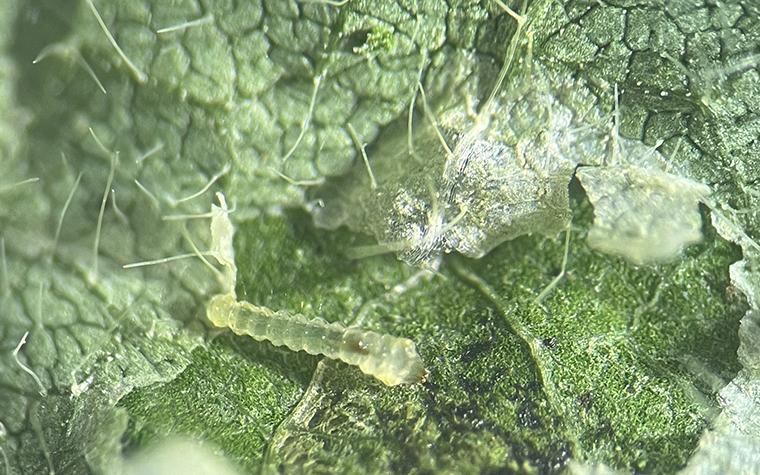
New soybean pest found in Missouri
MU Extension state crops entomologist Ivair Valmorbida has confirmed the presence of a new soybean pest in Missouri, soybean tentiform leafminer. Valmorbida encourages farmers to scout soybean fields for the pest.
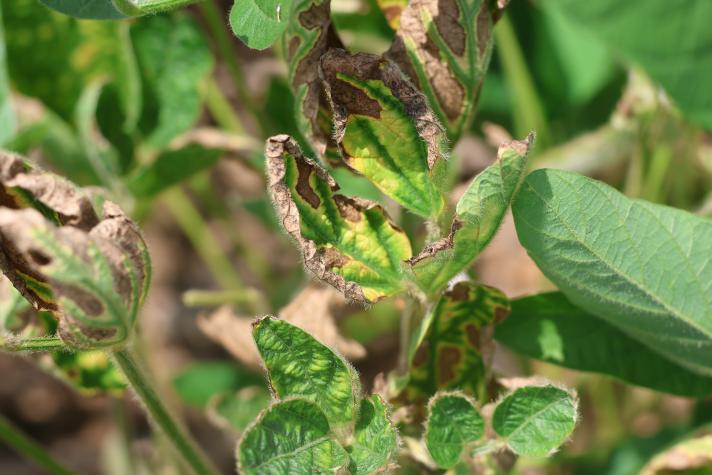
Red crown rot appears in two more Missouri counties
Red crown rot confirmed in Maries and Phelps counties; scout fields for irregular patches, especially in wet areas.
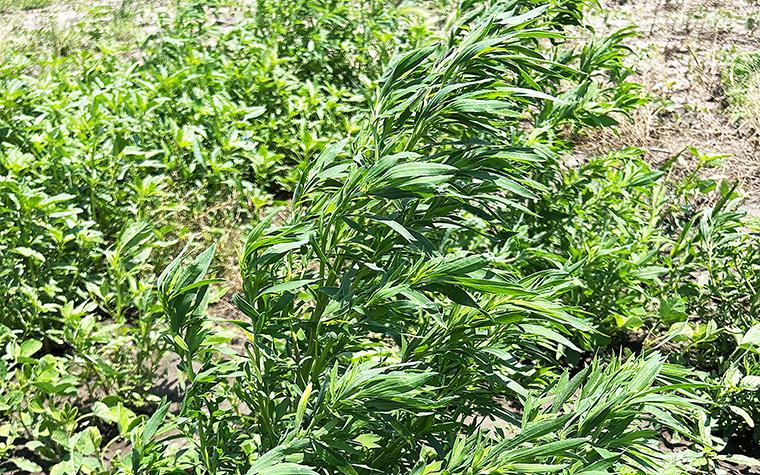
Kochia found in NW Missouri soybean fields
Kochia, a highly competitive weed that can reduce yields by as much as 70%, has been found in northwestern Missouri soybean fields. Kochia is not new to Missouri, but this may be the first report of kochia showing up in cropland.
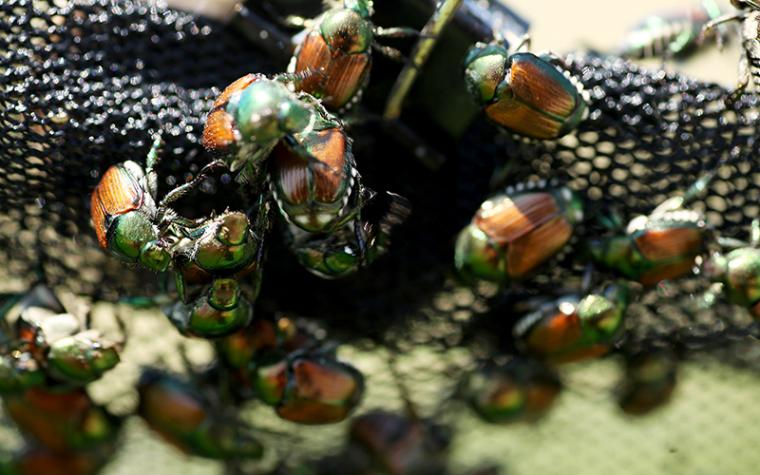
First reports of Japanese beetles received in Missouri
COLUMBIA, Mo. – University of Missouri Integrated Pest Management reports the capture of its first Japanese beetles of the season, says MU Extension crops entomologist Ivair Valmorbida. The beetles appeared in Stoddard, Barton, Christian and Holt counties, as reported by MU’s Pest Monitoring Network, which gathers information from across the state.
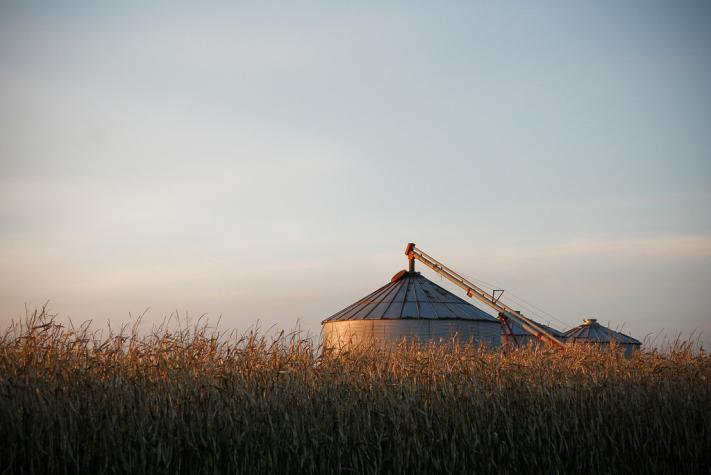
Replant or roll with it? MU guide weighs costs, payoffs
COLUMBIA, Mo. – When faced with a sparse or failed stand, crop producers have to ask themselves a difficult question: Should I replant?

MU releases payment plan decision tool for corn, soybean, wheat
Free tool helps farmers compare PLC and ARC-CO program payments for corn, soybean, and wheat in 2025.
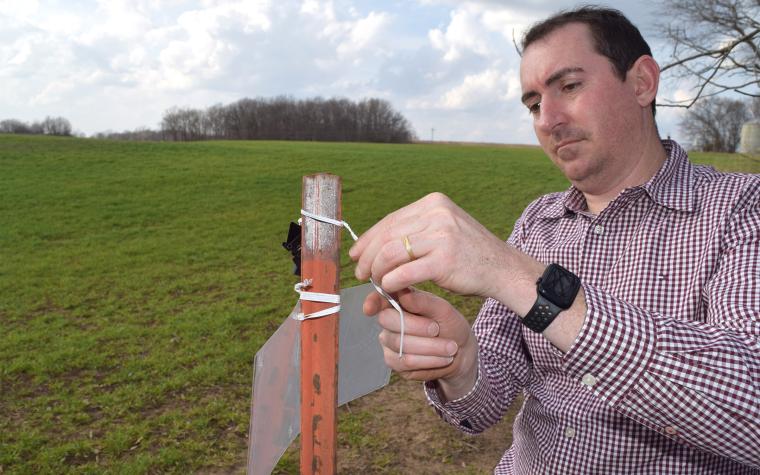
Sign up now for 2025 crop pest alerts
Sign up for free 2025 crop pest alerts to protect fields and gardens from Japanese beetles, armyworms, stink bugs, and more.
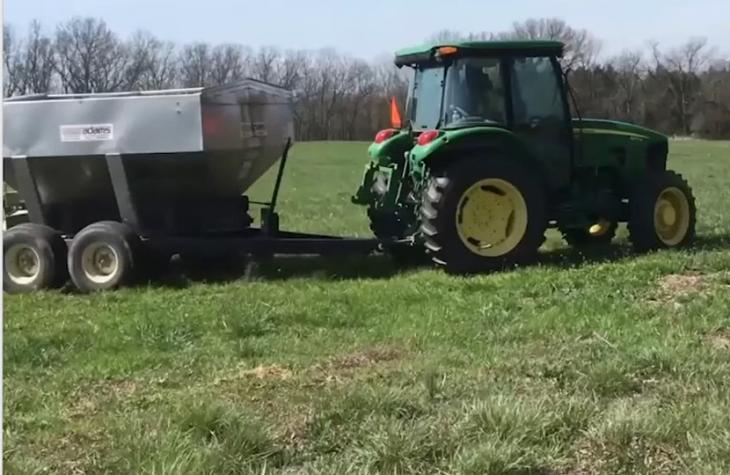
Are there opportunities to cut fertilizer costs in 2025?
Farmers may save on fertilizer in 2025 by reducing phosphorus, potassium, or lime on medium- to high-testing soils without lowering yields.
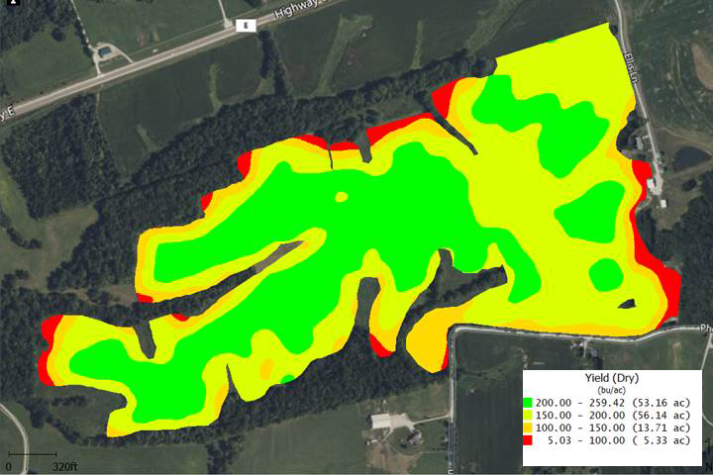
10 ways to manage high input costs in 2025
ST. JOSEPH, Mo. – University of Missouri Extension agronomist Wayne Flanary says 2025 likely will be a year when corn producers need to batten down the hatches to offset low sale prices and high input costs. MU Extension ag business economist Ben Brown and others predict that corn prices will fall below the $4.30 mark by the end of 2025, a marked drop from $6.54 per bushel in 2023.
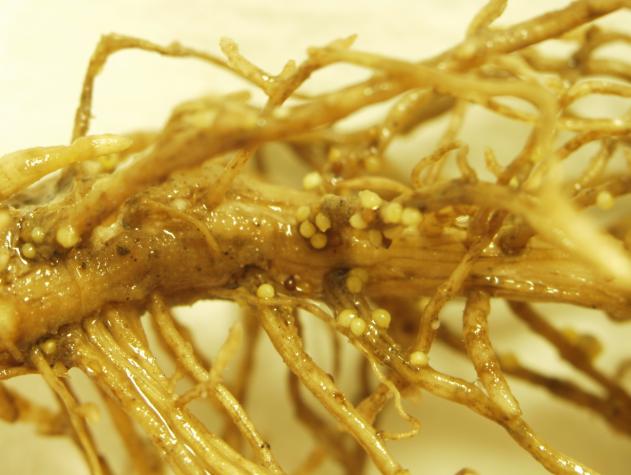
MU studies how varieties, seed treatments reduce SCN
COLUMBIA, Mo. – Soybean growers can’t rely on seed treatments alone to combat soybean cyst nematode (SCN), says University of Missouri Extension state plant pathologist Mandy Bish.

Do fungicides pay off in soybean?
COLUMBIA, Mo. – Fungicides can be an essential part of an integrated pest management plan, but they do not always provide a positive return on investment for soybean producers, according to University of Missouri strip trial research.
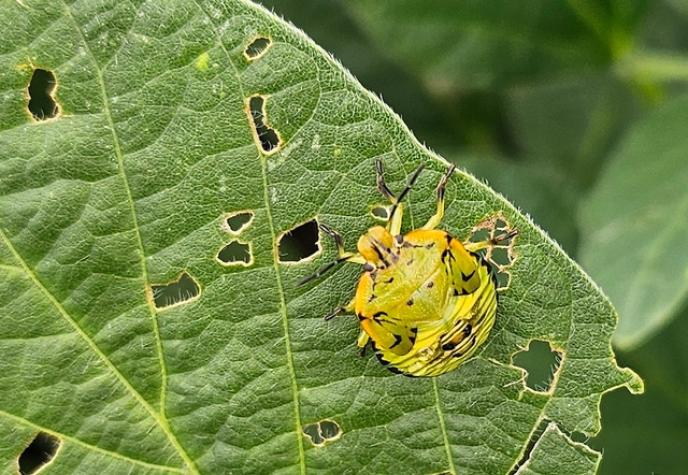
Be on lookout for stink bugs in soybean in 2025
Soybean farmers in Missouri should scout for stink bugs in 2025 to prevent yield losses and maintain seed quality.

Red crown rot: No cure for this soybean disease
Red crown rot in soybeans has no cure. Manage spread with crop rotation, drainage, and equipment sanitation.

Avoid applying fall anhydrous in northern, central Missouri
Northern‐central Missouri fields face high nitrogen loss risk when applying anhydrous ammonia in fall; soil temps need to drop below 40°F.